Song Itinerary Aboriginal Australians: racism, segragation, assimilation and stolen generations
Yil lull
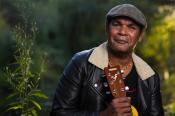
I sing, for the black, and the people of this land
(Continues)
(Continues)
Contributed by Dq82 2024/3/26 - 12:07
April 25th
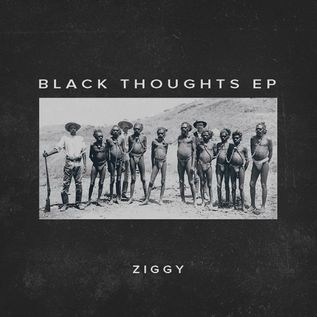
2020
Black Thoughts
As Australia’s ‘most important’ commemoration, Anzac day is a national tribute to soldiers who fought for the country in 1915. The annual commemoration is deeply reverenced, particularly those personally linked to the war.
Black Thoughts
As Australia’s ‘most important’ commemoration, Anzac day is a national tribute to soldiers who fought for the country in 1915. The annual commemoration is deeply reverenced, particularly those personally linked to the war.
April 25th
(Continues)
(Continues)
Contributed by Dq82 2023/4/8 - 13:09
Will You Fight, Will You Dare?
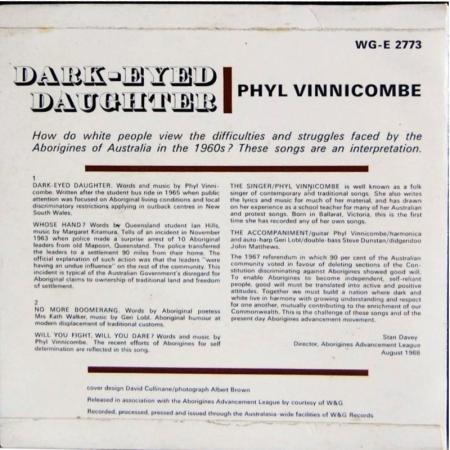
1968
Dark-eyed daughter
Pubblicato con il nome Phyl Vinnicombe (Lobl è il cognome da sposata)
Words & tune: Lobl
'The 1967 referendum in which 90% of the Australian Community voted in favour of deleting sections of the Constitution discriminating against Aborigines showed goodwill. To enable Aborigines to become independent, self-reliant people this goodwill must be translated into active and positive attitudes. Together we must build a nation where dark and white live in harmony with growing understanding and respect for one another, mutually contributing to the enrichment of our Commonwealth. This is the challenge of these songs and of the present day Aboriginal advancement movement.'
This is still the challenge but now many aboriginal people show us the value of their culture, they show us the meaning of resilience, they show us the way ahead, they show us how to forgive,... (Continues)
Dark-eyed daughter
Pubblicato con il nome Phyl Vinnicombe (Lobl è il cognome da sposata)
Words & tune: Lobl
'The 1967 referendum in which 90% of the Australian Community voted in favour of deleting sections of the Constitution discriminating against Aborigines showed goodwill. To enable Aborigines to become independent, self-reliant people this goodwill must be translated into active and positive attitudes. Together we must build a nation where dark and white live in harmony with growing understanding and respect for one another, mutually contributing to the enrichment of our Commonwealth. This is the challenge of these songs and of the present day Aboriginal advancement movement.'
This is still the challenge but now many aboriginal people show us the value of their culture, they show us the meaning of resilience, they show us the way ahead, they show us how to forgive,... (Continues)
The dreamtime folk are stirring now
(Continues)
(Continues)
Contributed by dq82 2022/8/21 - 11:52
January 26
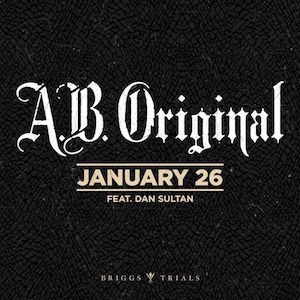
2016
January 26
Described by The Guardian as being a ‘mic drop on the nation’, ‘January 26’ is a protest anthem unlike any other.
Penned by Indigenous MCs Briggs and Trials and featuring a hook from Dan Sultan, ‘January 26’ sees A.B. Original tear into the celebration of Australia Day on January 26 when James Cook first docked in Botany Bay: a date which many Aboriginal Australians associate with the ongoing persecution and systematic genocide of their people.
Although the date is set to be changed, ‘January 26’ undeniably flung the conversation into the conscience of the mainstream, and acted as a history lesson for many a young Australian raised in an educational system that tends to glance over such details.
January 26
Described by The Guardian as being a ‘mic drop on the nation’, ‘January 26’ is a protest anthem unlike any other.
Penned by Indigenous MCs Briggs and Trials and featuring a hook from Dan Sultan, ‘January 26’ sees A.B. Original tear into the celebration of Australia Day on January 26 when James Cook first docked in Botany Bay: a date which many Aboriginal Australians associate with the ongoing persecution and systematic genocide of their people.
Although the date is set to be changed, ‘January 26’ undeniably flung the conversation into the conscience of the mainstream, and acted as a history lesson for many a young Australian raised in an educational system that tends to glance over such details.
You can call it what you want
(Continues)
(Continues)
Contributed by Dq82 2022/4/4 - 10:46
Black & Deadly
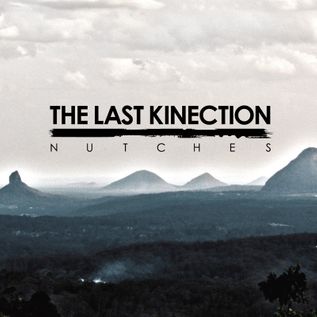
2008
Nutches
'Lucky country for some but for others it isn't.'
For Reconciliation Week 2021, we explore some of the most enduring, anthemic songs by Indigenous artists that have showed paths towards reconciliation.
Today, The Last Kinection's 2008 anthem 'Black & Deadly'.
In 2008, Newcastle-via-Cairns trio The Last Kinection burst onto the scene with their debut album Nutches.
Kabbi Kabbi brother and sister Joel and Nay Wenitong and DJ Jaytee, used music to talk about the everyday experiences of Indigenous people.
The Last Kinection
Hear the story of Black & Deadly above:
The song 'Black & Deadly' was inspired by a racist encounter Nay had at Brisbane Airport.
"This guy comes up and he said, ‘Hey, where are you from?’" she says.
"I said, Cairns, and he goes ‘Oh, don't buy a house in any of the suburbs starting with M because all the blah, blah, blah.’ And he's talking... (Continues)
Nutches
'Lucky country for some but for others it isn't.'
For Reconciliation Week 2021, we explore some of the most enduring, anthemic songs by Indigenous artists that have showed paths towards reconciliation.
Today, The Last Kinection's 2008 anthem 'Black & Deadly'.
In 2008, Newcastle-via-Cairns trio The Last Kinection burst onto the scene with their debut album Nutches.
Kabbi Kabbi brother and sister Joel and Nay Wenitong and DJ Jaytee, used music to talk about the everyday experiences of Indigenous people.
The Last Kinection
Hear the story of Black & Deadly above:
The song 'Black & Deadly' was inspired by a racist encounter Nay had at Brisbane Airport.
"This guy comes up and he said, ‘Hey, where are you from?’" she says.
"I said, Cairns, and he goes ‘Oh, don't buy a house in any of the suburbs starting with M because all the blah, blah, blah.’ And he's talking... (Continues)
"I'm black and deadly"
(Continues)
(Continues)
Contributed by Dq82 2022/4/2 - 19:41
I Still Call Australia Home
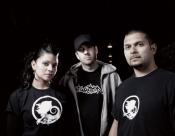
The track “Still Call Australia Home” has never been released on any album. The Last Kinection used the track for live shows.
La canzone è un rifacimento di una canzone patriottica di Peter Allen
La canzone è un rifacimento di una canzone patriottica di Peter Allen
They invaded, degraded, and polluted our land
(Continues)
(Continues)
Contributed by Dq82 2022/4/2 - 19:32
Brisbane Blacks

1982
Mop Conlon wrote 'Brisbane Blacks' so Aboriginal rights wouldn't become yesterday's news
In September 1982, Brisbane hosted the 12th Commonwealth Games. With the world’s eyes on Australia, First Nations people from around the country converged on the Queensland capital to march for Aboriginal rights.
The protests – and the mass arrests that followed – gained international attention. They also got the attention of a local musician by the name of Dennis 'Mop' Conlon.
Aboriginal dot artwork with the text Songs of ReconciliationPlaySpace to play or pause, M to mute, left and right arrows to seek, up and down arrows for volume.
Hear the story of 'Brisbane Blacks' above:
Conlon had grown up in Cherbourg, playing music with his uncles and with his band Dennis Conlon and the Magpies, who would later become known as Mop & the Dropouts.
As he watched the protests on the news that night,... (Continues)
Mop Conlon wrote 'Brisbane Blacks' so Aboriginal rights wouldn't become yesterday's news
In September 1982, Brisbane hosted the 12th Commonwealth Games. With the world’s eyes on Australia, First Nations people from around the country converged on the Queensland capital to march for Aboriginal rights.
The protests – and the mass arrests that followed – gained international attention. They also got the attention of a local musician by the name of Dennis 'Mop' Conlon.
Aboriginal dot artwork with the text Songs of ReconciliationPlaySpace to play or pause, M to mute, left and right arrows to seek, up and down arrows for volume.
Hear the story of 'Brisbane Blacks' above:
Conlon had grown up in Cherbourg, playing music with his uncles and with his band Dennis Conlon and the Magpies, who would later become known as Mop & the Dropouts.
As he watched the protests on the news that night,... (Continues)
On TV I saw a story, of the Brisbane Blacks
(Continues)
(Continues)
Contributed by Dq82 2022/4/2 - 19:15
Capital
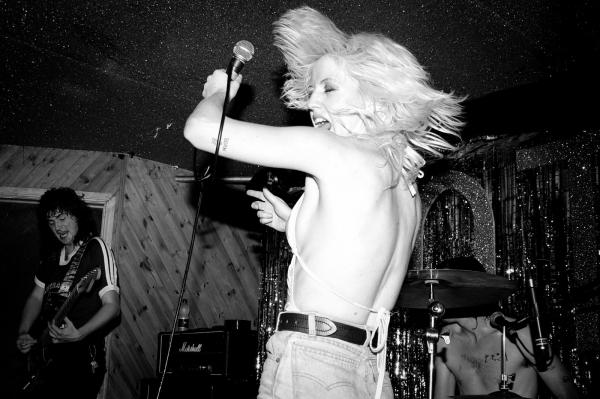
(2021)
album: Comfort To Me
She is also developing her political consciousness, turning to books by the likes of Malcolm Gladwell to help her process the pandemic. “I never saw value in reading, and then I realised that I could be an intellectual weapon if I read.” Yuval Noah Harari’s Sapiens influenced the song Capital, in which Taylor confronts the failings of the Australian government in the face of mounting crises such as the devastating bushfires, farmers affected by prolonged drought and the treatment of Indigenous Australians.
The Guardian
album: Comfort To Me
She is also developing her political consciousness, turning to books by the likes of Malcolm Gladwell to help her process the pandemic. “I never saw value in reading, and then I realised that I could be an intellectual weapon if I read.” Yuval Noah Harari’s Sapiens influenced the song Capital, in which Taylor confronts the failings of the Australian government in the face of mounting crises such as the devastating bushfires, farmers affected by prolonged drought and the treatment of Indigenous Australians.
“Where I come in from, I don’t know much about this shit,” she says. “Nobody gets taught Indigenous history in school. You have to search for it if you want to learn about it. A big chunk of me is a straight-up, motherfucking bogan and I’m proud of that part, but I want to listen to other people. There’s probably heaps of people who feel the same way we do, but they get lumped in [as ignorant] because they like cars and ciggies.”
The Guardian
Comfort to me, what does that even mean? One reason, do we persevere?
(Continues)
(Continues)
2021/10/2 - 16:43
Ballad of Lachlan Macquarie
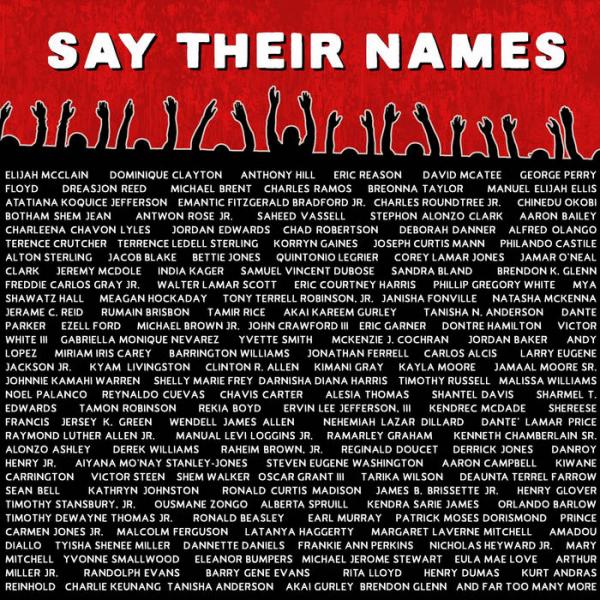
2020
Say their names
Lachlan Macquarie (Ulbha, 31 gennaio 1762 – Londra, 1º luglio 1824) è stato un generale scozzese. Fu governatore coloniale nel Nuovo Galles del Sud, in Australia, ed ebbe un ruolo cruciale nello sviluppo economico e sociale del territorio, che sotto la sua guida cominciò la transizione da colonia penale a libero insediamento.
Say their names
Lachlan Macquarie (Ulbha, 31 gennaio 1762 – Londra, 1º luglio 1824) è stato un generale scozzese. Fu governatore coloniale nel Nuovo Galles del Sud, in Australia, ed ebbe un ruolo cruciale nello sviluppo economico e sociale del territorio, che sotto la sua guida cominciò la transizione da colonia penale a libero insediamento.
Lachlan Macquarie was a Scotsman who
(Continues)
(Continues)
Contributed by Dq82 2020/12/7 - 19:03
Statement Uluru

© Tony Smith 2019
Australian governments ask Indigenous people to tell them how to address the issues caused by dispossession. Patiently, Indigenous Australians consult widely and then make specific suggestions. Inevitably governments procrastinate and fail to act on these proposals. The latest of these the Statement from the Heart, delivered at Uluru, which emphasised the need for a Treaty, Truth and a Voice, is suffering the same fate as previous reports.
Australian governments ask Indigenous people to tell them how to address the issues caused by dispossession. Patiently, Indigenous Australians consult widely and then make specific suggestions. Inevitably governments procrastinate and fail to act on these proposals. The latest of these the Statement from the Heart, delivered at Uluru, which emphasised the need for a Treaty, Truth and a Voice, is suffering the same fate as previous reports.
There came a statement from the heart
(Continues)
(Continues)
Contributed by Tony Smith 2019/11/8 - 04:26
Continuate a uccidere il poeta
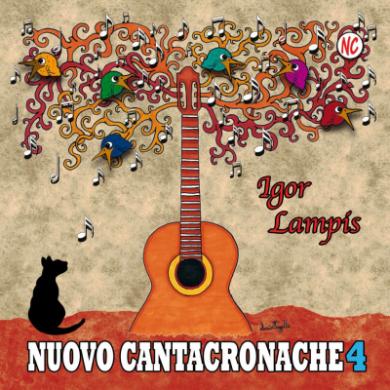
2018
Nuovo Cantacronache 4
L’urgenza di un Nuovo Cantacronache in questi tempi così svuotati di senso e bellezza è un fatto scontato.
Dal gruppo torinese che si proponeva di “evadere dall’evasione”, Igor Lampis raccoglie il testimone del rigore programmatico, del taglio narrativo, della versificazione incalzante in rima baciata, dell’osservazione acuta che si fa invettiva, tra sberleffo e dramma, declinando il tutto con un’attitudine punk che schiaffeggia in maniera provocatoria il belcanto, le buone maniere e qualsiasi deriva estetizzante per dire con schiettezza vino al vino e pane al pane.
Lampis narra con il piglio del cantastorie l’epopea sommersa della gente comune, quella che se la passa male, quella che si arrangia di lavoro in lavoro, vessata dall’opprimente assenza dello Stato. La sua è la voce del guastafeste che canta fuori dal coro: la voce di chi rifiuta l’omologazione,... (Continues)
Nuovo Cantacronache 4
L’urgenza di un Nuovo Cantacronache in questi tempi così svuotati di senso e bellezza è un fatto scontato.
Dal gruppo torinese che si proponeva di “evadere dall’evasione”, Igor Lampis raccoglie il testimone del rigore programmatico, del taglio narrativo, della versificazione incalzante in rima baciata, dell’osservazione acuta che si fa invettiva, tra sberleffo e dramma, declinando il tutto con un’attitudine punk che schiaffeggia in maniera provocatoria il belcanto, le buone maniere e qualsiasi deriva estetizzante per dire con schiettezza vino al vino e pane al pane.
Lampis narra con il piglio del cantastorie l’epopea sommersa della gente comune, quella che se la passa male, quella che si arrangia di lavoro in lavoro, vessata dall’opprimente assenza dello Stato. La sua è la voce del guastafeste che canta fuori dal coro: la voce di chi rifiuta l’omologazione,... (Continues)
Continuate a uccidere il poeta,
(Continues)
(Continues)
Contributed by Dq82 2019/2/4 - 13:29
Pushed

Historians have barely begun to document the terrible effects on Aboriginal people of the European invasion of Australia since 1788. One problem is that the European approach to evidence relies heavily on written documents. Indigenous memory on the other hand is found in oral narratives. This song tells the story of a massacre in the Central Tablelands of New South Wales and of the conflict over what counts as evidence. It is time we abandoned our patronising attitudes and acknowledged the validity of Indigenous epistemology.
Some young men escaped
(Continues)
(Continues)
Contributed by Tony Smith 2018/12/29 - 22:20
Stolen Generation
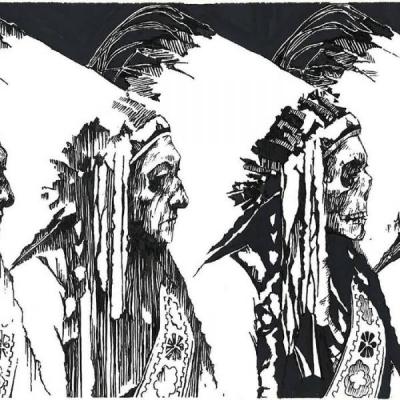
2016
S/T
S/T
Extract. Misplace. Dissolve. Culture.
(Continues)
(Continues)
Contributed by Dq82 2018/6/1 - 21:02
No More Boomerang

1968
Dark-eyed daughter
Pubblicato con il nome Phyl Vinnicombe (Lobl è il cognome da sposata)
Words: Walker (Noonuccal)
Tune: Lobl
'The 1967 referendum in which 90% of the Australian Community voted in favour of deleting sections of the Constitution discriminating against Aborigines showed goodwill. To enable Aborigines to become independent, self-reliant people this goodwill must be translated into active and positive attitudes. Together we must build a nation where dark and white live in harmony with growing understanding and respect for one another, mutually contributing to the enrichment of our Commonwealth. This is the challenge of these songs and of the present day Aboriginal advancement movement.'
This is still the challenge but now many aboriginal people show us the value of their culture, they show us the meaning of resilience, they show us the way ahead, they show us how... (Continues)
Dark-eyed daughter
Pubblicato con il nome Phyl Vinnicombe (Lobl è il cognome da sposata)
Words: Walker (Noonuccal)
Tune: Lobl
'The 1967 referendum in which 90% of the Australian Community voted in favour of deleting sections of the Constitution discriminating against Aborigines showed goodwill. To enable Aborigines to become independent, self-reliant people this goodwill must be translated into active and positive attitudes. Together we must build a nation where dark and white live in harmony with growing understanding and respect for one another, mutually contributing to the enrichment of our Commonwealth. This is the challenge of these songs and of the present day Aboriginal advancement movement.'
This is still the challenge but now many aboriginal people show us the value of their culture, they show us the meaning of resilience, they show us the way ahead, they show us how... (Continues)
No more boomerang no more spear,
(Continues)
(Continues)
Contributed by Dq82 2018/1/5 - 13:28
When Cathy Runs
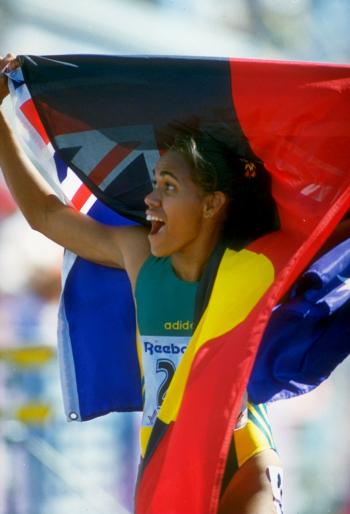
[2000]
2016
Searching for Rewind
Cathy Freeman medaglia d'oro sui 400 metri alle Olimpiadi di Sidney. Nel giro d'onore sfilò anche con la bandiera aborigena, nonostante il divieto, così come aveva fatto già ai giochi del Commonwealth nel 1994.
Dopo il suo ritiro sportivo si è dedicata a svariate attività sociali ed educative per gli aborigeni.
I soprusi vendicati in pista dall'oro di Cathy Freeman
di Emanuela Audisio
Partì, arrivò, vinse. Era la sua corsa, il suo paese, il suo pubblico. Fece una cosa umile: stette lì inginocchiata sulla pista, davanti a 112.524 spettatori. Finalmente non era più prigioniera, ma simbolo di un paese, di una riconciliazione, di un futuro.
Aveva la bocca e la lingua secca, e un body integrale che la faceva sembrare una crociata fuori posto. Invece Cathy Freeman era al posto giusto: prima nei 400 metri, primo oro aborigeno e prima atleta, ultima tedofora,... (Continues)
2016
Searching for Rewind
Cathy Freeman medaglia d'oro sui 400 metri alle Olimpiadi di Sidney. Nel giro d'onore sfilò anche con la bandiera aborigena, nonostante il divieto, così come aveva fatto già ai giochi del Commonwealth nel 1994.
Dopo il suo ritiro sportivo si è dedicata a svariate attività sociali ed educative per gli aborigeni.
I soprusi vendicati in pista dall'oro di Cathy Freeman
di Emanuela Audisio
Partì, arrivò, vinse. Era la sua corsa, il suo paese, il suo pubblico. Fece una cosa umile: stette lì inginocchiata sulla pista, davanti a 112.524 spettatori. Finalmente non era più prigioniera, ma simbolo di un paese, di una riconciliazione, di un futuro.
Aveva la bocca e la lingua secca, e un body integrale che la faceva sembrare una crociata fuori posto. Invece Cathy Freeman era al posto giusto: prima nei 400 metri, primo oro aborigeno e prima atleta, ultima tedofora,... (Continues)
Not the best of starts - Just five and a half - Family torn apart
(Continues)
(Continues)
Contributed by Dq82 2018/1/2 - 14:38
Stolen Generations
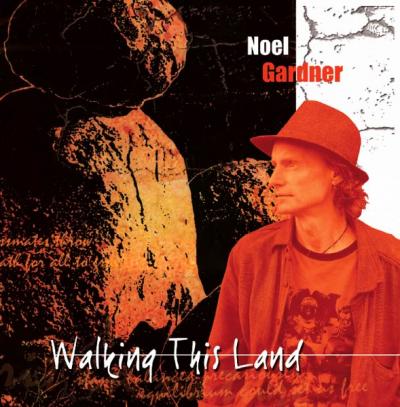
2005
Walking This Land
The inspiration for this song came after reading some testimony given to the Stolen Generationenquiry and my recollection of an old Cinesound documentary about two small aboriginal girls who were taken from their family and adopted by a white family. The storyline was to show how 'lucky' these girls were to be given a real chance at life. My lasting image of that documentary was at the end when the girls (in new white frilly dresses) were being led up to their new bedroom and the commentator said - ‘yes dreams really do come true’.
Walking This Land
The inspiration for this song came after reading some testimony given to the Stolen Generationenquiry and my recollection of an old Cinesound documentary about two small aboriginal girls who were taken from their family and adopted by a white family. The storyline was to show how 'lucky' these girls were to be given a real chance at life. My lasting image of that documentary was at the end when the girls (in new white frilly dresses) were being led up to their new bedroom and the commentator said - ‘yes dreams really do come true’.
Well he stroke my hair and he pat my back, then he tell me I look fine
(Continues)
(Continues)
Contributed by Dq82 2017/10/8 - 21:06
Sweet Child of Mine
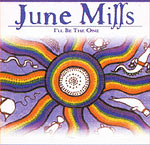
2005
I'll be the One
A well-known Larrakia singer and community leader in Darwin, Northern Territory, June Mills blends country and western with her Phillipino/East Timorese musical heritage through use of organ, vocals and acoustic guitar. In her song “Sweet Child of Mine” on her albumI’ll Be the One (2005) she sings of the sorrow of the mother who hopes her child will remember her family and her identity. The song also emphasizes the loss of language, culture, and identity of children who were forcibly removed from their families.
The impact of the Stolen Generation policies has left its mark on Mills’ family as her grandmother was taken from her family when she was 6 years old. Mills states, “My grandmother was taken away from her tribal country when she was about 6 years old and given a new name. She grew up in Katherine and had nine children, she gave birth to all her children at... (Continues)
I'll be the One
A well-known Larrakia singer and community leader in Darwin, Northern Territory, June Mills blends country and western with her Phillipino/East Timorese musical heritage through use of organ, vocals and acoustic guitar. In her song “Sweet Child of Mine” on her albumI’ll Be the One (2005) she sings of the sorrow of the mother who hopes her child will remember her family and her identity. The song also emphasizes the loss of language, culture, and identity of children who were forcibly removed from their families.
The impact of the Stolen Generation policies has left its mark on Mills’ family as her grandmother was taken from her family when she was 6 years old. Mills states, “My grandmother was taken away from her tribal country when she was about 6 years old and given a new name. She grew up in Katherine and had nine children, she gave birth to all her children at... (Continues)
Remember your name
(Continues)
(Continues)
Contributed by Dq82 2017/10/8 - 20:41
Brown Skin Baby (They Took Me Away)
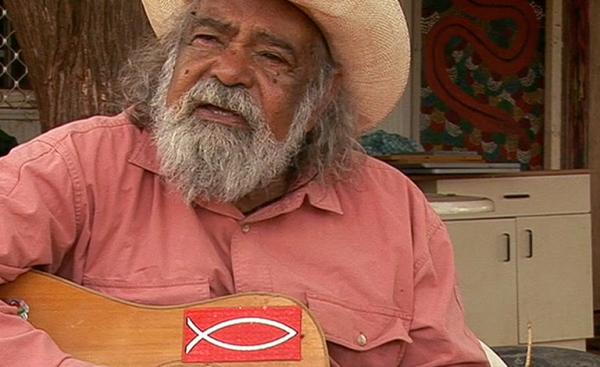
1970
QUesta canzone scritta da Bob Randall racconta la sua esperienza di bambino rubato, come avveniva per i figli degli aborigeni in nome dell'assimilazione culturale.
Bob Randall’s Brown Skin Baby, recorded in 1970, was one of the first songs written about the Stolen Generations. The song explores Randall’s own traumatic past of being “stolen”, echoing the voice of his mother as she cries and grieves for her “brown skin baby”. The song’s reception brought the events of the Stolen Generations to national and international audiences. It is not surprising that it quickly became an anthem for Indigenous communities (Barney & Macklinary, 2010).
The song is autobiographical. It begins by discussing Randall’s early life. As a boy, he spent the first years of his life on a farm in the Northern Territory with his family, riding a pony. Aware that he was at risk of being taken, the women in... (Continues)
QUesta canzone scritta da Bob Randall racconta la sua esperienza di bambino rubato, come avveniva per i figli degli aborigeni in nome dell'assimilazione culturale.
Bob Randall’s Brown Skin Baby, recorded in 1970, was one of the first songs written about the Stolen Generations. The song explores Randall’s own traumatic past of being “stolen”, echoing the voice of his mother as she cries and grieves for her “brown skin baby”. The song’s reception brought the events of the Stolen Generations to national and international audiences. It is not surprising that it quickly became an anthem for Indigenous communities (Barney & Macklinary, 2010).
The song is autobiographical. It begins by discussing Randall’s early life. As a boy, he spent the first years of his life on a farm in the Northern Territory with his family, riding a pony. Aware that he was at risk of being taken, the women in... (Continues)
My brown skin baby, they take him away
(Continues)
(Continues)
Contributed by Dq82 2017/10/8 - 17:09
The Children Came Back
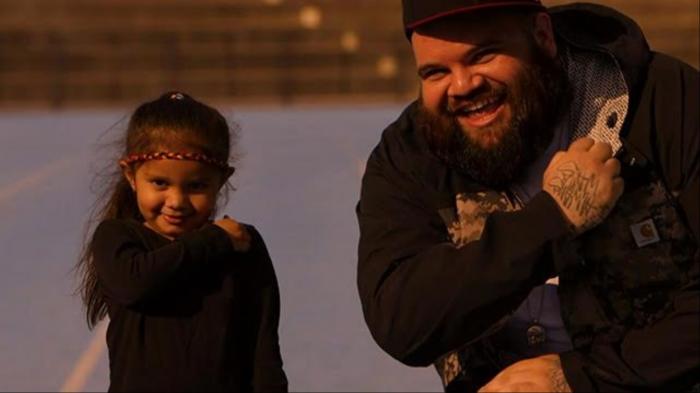
2014
In celebration of 2014’s Naidoc Week, Briggs, along with Gurrumul, Dewayne Everettsmith and B2M performed “The Children Came Back” live on Australian radio-station Triple J as part of their long running segment ‘Like A Version’.
A year later in lead up to Naidoc Week 2015 and the release of Archie Roache’s 25th Anniversary Edition of ‘Charcoal Lane,’ a studio version was released of the song.
The song is somewhat of a triumphant sequel to Archie Roach’s deeply sad “They Took the Children Away”
The first verse of Brigg’s version makes references a number of successful contemporary indigenous people including Gavin Wanganeen, Anthony Mundine, Adam Goodes, Patty Mills and Cathy Freeman. The second verse delves a little deeper into past figures such as Doug Nicholls, Lionel Rose & William Cooper. The third verse finds Brigg’s bringing it back a closer to home. In this verse he makes... (Continues)
In celebration of 2014’s Naidoc Week, Briggs, along with Gurrumul, Dewayne Everettsmith and B2M performed “The Children Came Back” live on Australian radio-station Triple J as part of their long running segment ‘Like A Version’.
A year later in lead up to Naidoc Week 2015 and the release of Archie Roache’s 25th Anniversary Edition of ‘Charcoal Lane,’ a studio version was released of the song.
The song is somewhat of a triumphant sequel to Archie Roach’s deeply sad “They Took the Children Away”
The first verse of Brigg’s version makes references a number of successful contemporary indigenous people including Gavin Wanganeen, Anthony Mundine, Adam Goodes, Patty Mills and Cathy Freeman. The second verse delves a little deeper into past figures such as Doug Nicholls, Lionel Rose & William Cooper. The third verse finds Brigg’s bringing it back a closer to home. In this verse he makes... (Continues)
I'm Fitzroy(1) where the stars be
(Continues)
(Continues)
Contributed by Dq82 2017/10/2 - 22:51
Solid Rock
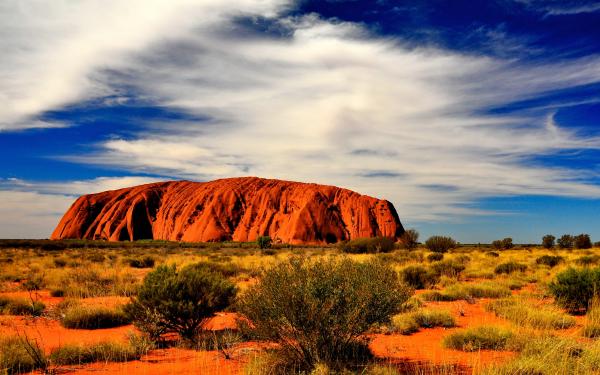
1982
Spirit of place
Shane Howard had an epiphany when he went camping out near Uluru in 1981. That's when the idea for his song Solid Rock came into his head.
Solid Rock was Howard's response to the injustices he saw in some of Australia's indigenous communities in 1981.
I realised that this country that I grew up in, that I thought was my country, wasn't. I had to reassess my whole relationship with the land and the landscape, and understand that we had come from somewhere else, and we had dis-empowered a whole race of people when we arrived.
— Shane Howard
Spirit of place
Shane Howard had an epiphany when he went camping out near Uluru in 1981. That's when the idea for his song Solid Rock came into his head.
Solid Rock was Howard's response to the injustices he saw in some of Australia's indigenous communities in 1981.
I realised that this country that I grew up in, that I thought was my country, wasn't. I had to reassess my whole relationship with the land and the landscape, and understand that we had come from somewhere else, and we had dis-empowered a whole race of people when we arrived.
— Shane Howard
Out here nothin' changes, not in a hurry anyway
(Continues)
(Continues)
Contributed by Dq82 2017/10/2 - 21:11
Black Man's Rights
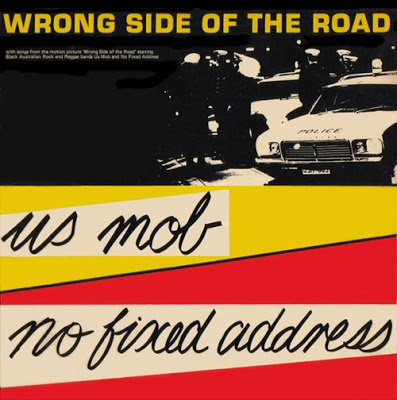
1981
Lyrics and music by Bart Willoughby
Wrong Side Of The Road is a ground breaking 1981 Australian film, road movie, rock documentary, musical drama, it followed 2 days of life on the road for two Aboriginal rock/reggae bands which were largely unknown to mainstream Australia: No Fixed Address e Us Mob.
Its a great film it tackled the taboo subject of racism in Australia head on, a topic which one would say still is pretty taboo.
Each band gets a side each on the album, No fixed address later released their groundbreaking Ep "From My Eyes"
Lyrics and music by Bart Willoughby
Wrong Side Of The Road is a ground breaking 1981 Australian film, road movie, rock documentary, musical drama, it followed 2 days of life on the road for two Aboriginal rock/reggae bands which were largely unknown to mainstream Australia: No Fixed Address e Us Mob.
Its a great film it tackled the taboo subject of racism in Australia head on, a topic which one would say still is pretty taboo.
Each band gets a side each on the album, No fixed address later released their groundbreaking Ep "From My Eyes"
I am a black, black man
(Continues)
(Continues)
Contributed by Dq82 2017/9/30 - 15:28
We Have Survived

1981
Lyrics and music by Bart Willoughby
Wrong Side Of The Road is a ground breaking 1981 Australian film, road movie, rock documentary, musical drama, it followed 2 days of life on the road for two Aboriginal rock/reggae bands which were largely unknown to mainstream Australia: No Fixed Address e Us Mob.
Its a great film it tackled the taboo subject of racism in Australia head on, a topic which one would say still is pretty taboo.
Each band gets a side each on the album, No fixed address later released their groundbreaking Ep "From My Eyes"
Lyrics and music by Bart Willoughby
Wrong Side Of The Road is a ground breaking 1981 Australian film, road movie, rock documentary, musical drama, it followed 2 days of life on the road for two Aboriginal rock/reggae bands which were largely unknown to mainstream Australia: No Fixed Address e Us Mob.
Its a great film it tackled the taboo subject of racism in Australia head on, a topic which one would say still is pretty taboo.
Each band gets a side each on the album, No fixed address later released their groundbreaking Ep "From My Eyes"
You can't change the rhythm of my soul,
(Continues)
(Continues)
Contributed by Dq82 2017/9/30 - 15:05
Blackfella/Whitefella
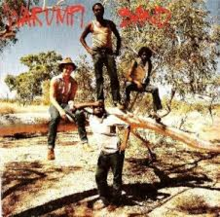
1985
Blackfella/Whitefella
1986
Big Name, No Blankets
In Australia la segregazione razziale è stata, ed è, paragonabile a quella vigente negli Stati Uniti o all'Apartheid Sudafricana. Ancora nel 2012 sono state promulgate leggi che creavano leggi ad hoc solo per gli aborigeni.
Questa canzone della band country Australiana Warumpi composta da musicisti sia bianchi che aborigeni auspica un futuro in cui non conti il colore della pelle
Blackfella/Whitefella
1986
Big Name, No Blankets
In Australia la segregazione razziale è stata, ed è, paragonabile a quella vigente negli Stati Uniti o all'Apartheid Sudafricana. Ancora nel 2012 sono state promulgate leggi che creavano leggi ad hoc solo per gli aborigeni.
Questa canzone della band country Australiana Warumpi composta da musicisti sia bianchi che aborigeni auspica un futuro in cui non conti il colore della pelle
Black fella, white fella
(Continues)
(Continues)
Contributed by Dq82 2017/9/27 - 18:37
This Heroes' Land
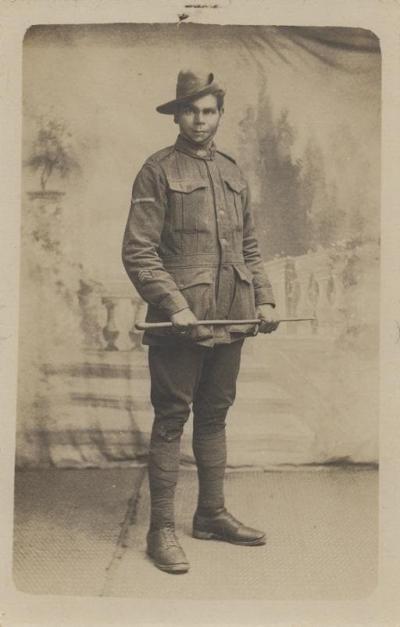
This Heroes’ Land
© Tony Smith 2017
During war time, Indigenous Australians have served gallantly in the armed forces. Until recently they were barely recognised. But an even greater injustice occurred when the children of some serving soldiers were forcibly removed to institutions.
© Tony Smith 2017
During war time, Indigenous Australians have served gallantly in the armed forces. Until recently they were barely recognised. But an even greater injustice occurred when the children of some serving soldiers were forcibly removed to institutions.
Barney and Jess were teenage friends
(Continues)
(Continues)
Contributed by Tony Smith 2017/9/23 - 06:19
Wiradjuri Country
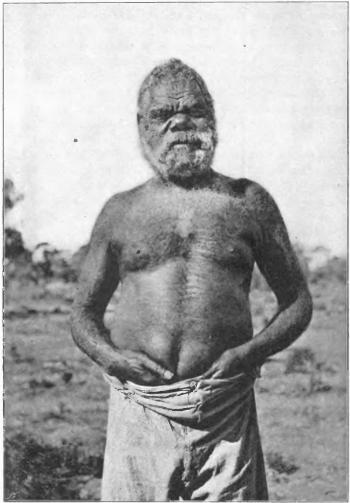
Wiradjuri Country
© Tony Smith 2013
I live on land in the Central Tablelands of New South Wales. The land was taken by force from the Wiradjuri people.
The song is my attempt to acknowledge the history of dispossession.
I used the tune to 'Joe Hill' after hearing Paul Robeson sing this union song.
© Tony Smith 2013
I live on land in the Central Tablelands of New South Wales. The land was taken by force from the Wiradjuri people.
The song is my attempt to acknowledge the history of dispossession.
I used the tune to 'Joe Hill' after hearing Paul Robeson sing this union song.
The place I live in has a past
(Continues)
(Continues)
Contributed by Tony Smith 2017/9/22 - 02:48
Incident, Wallis Plains, 1826

Incident, Wallis Plains, 1826
© Tony Smith 2017
John Eckford, brother of my 3 x great grandmother Jane, had an eventful life. Born in 1801, he was involved in the mistake which led to his father William being condemned to death for sheep stealing. He was appointed Constable at Wallis Plains (Maitland) in 1825.
Following violence between settlers and Aboriginal people, Governor Darling despatched Lt Lowe to the ‘frontier’. Colonial Secretary Bathurst issued orders that the raids of the locals should be repelled just as would raids by any other ‘state’. Aboriginal people were to be considered invaders in their own land.
Lowe was committed for trial following the summary execution of a prisoner ‘Jacky Jacky’. He was quickly found not guilty by the jury which consisted mainly of army officers. During the trial, the question arose of whether Aboriginal people were subjects of the crown and... (Continues)
© Tony Smith 2017
John Eckford, brother of my 3 x great grandmother Jane, had an eventful life. Born in 1801, he was involved in the mistake which led to his father William being condemned to death for sheep stealing. He was appointed Constable at Wallis Plains (Maitland) in 1825.
Following violence between settlers and Aboriginal people, Governor Darling despatched Lt Lowe to the ‘frontier’. Colonial Secretary Bathurst issued orders that the raids of the locals should be repelled just as would raids by any other ‘state’. Aboriginal people were to be considered invaders in their own land.
Lowe was committed for trial following the summary execution of a prisoner ‘Jacky Jacky’. He was quickly found not guilty by the jury which consisted mainly of army officers. During the trial, the question arose of whether Aboriginal people were subjects of the crown and... (Continues)
Come hearken to my story, the saddest of tales
(Continues)
(Continues)
Contributed by Tony Smith 2017/9/20 - 23:30
The Drover’s Boy
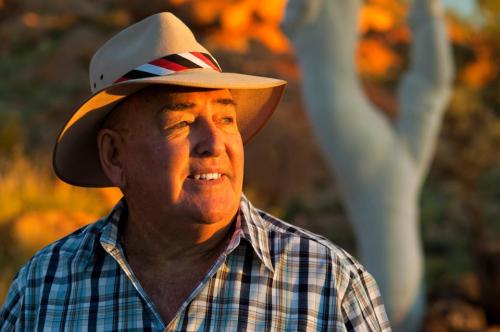
[1982]
Parole e musica di Ted Egan.
Nel disco “The Drover's Boy - A Celebration of Australian Women” pubblicato nel 2002
Testo trovato su Mudcat Café.
"Up to around 1940 much of the work on frontier cattle stations in northern Australia was performed by Aboriginal women. They did most of the domestic work, but many of them also worked as "stockmen" as they called themselves, and they made a marvelous contribution to the pastoral industry. Some worked as drovers, taking cattle on long trips interstate.
Because there had been so much ill-treatment and exploitation of Aboriginals, laws were passed preventing non-Aboriginal men from 'being in the company of Aboriginal women'. Marriage or association was only possible if permission was given by the Chief Protector of Aboriginals. Often Aboriginal women were dressed as 'boys' to defy these laws. More often than not this was implemented... (Continues)
Parole e musica di Ted Egan.
Nel disco “The Drover's Boy - A Celebration of Australian Women” pubblicato nel 2002
Testo trovato su Mudcat Café.
"Up to around 1940 much of the work on frontier cattle stations in northern Australia was performed by Aboriginal women. They did most of the domestic work, but many of them also worked as "stockmen" as they called themselves, and they made a marvelous contribution to the pastoral industry. Some worked as drovers, taking cattle on long trips interstate.
Because there had been so much ill-treatment and exploitation of Aboriginals, laws were passed preventing non-Aboriginal men from 'being in the company of Aboriginal women'. Marriage or association was only possible if permission was given by the Chief Protector of Aboriginals. Often Aboriginal women were dressed as 'boys' to defy these laws. More often than not this was implemented... (Continues)
They couldn't understand why the drover cried
(Continues)
(Continues)
Contributed by Bernart 2013/7/22 - 16:07
Black Deaths in Custody
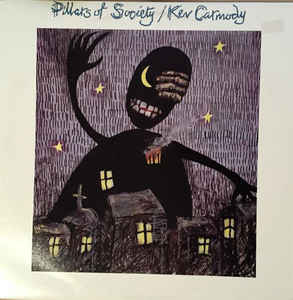
[1987]
Album "Pillars of Society"
Album "Pillars of Society"
There's one Black brother dead
(Continues)
(Continues)
Contributed by Alessandro 2009/10/5 - 13:57
Thou Shalt Not Steal

[1987]
Album "Pillars of Society"
In the song "Thou Shalt Not Steal", Carmody draws attention to the hypocrisy of British settlers who broughtChristianity to indigenous Australians, including the commandment prohibiting theft, and yet took the land that the Aboriginal people had inhabited for more than 60,000 years. He emphasises the importance of land to the indigenous people, "The land’s our heritage and spirit", and turns the Christian lesson given to indigenous people around: "We say to you yes, whiteman, thou shalt not steal"
Album "Pillars of Society"
In the song "Thou Shalt Not Steal", Carmody draws attention to the hypocrisy of British settlers who broughtChristianity to indigenous Australians, including the commandment prohibiting theft, and yet took the land that the Aboriginal people had inhabited for more than 60,000 years. He emphasises the importance of land to the indigenous people, "The land’s our heritage and spirit", and turns the Christian lesson given to indigenous people around: "We say to you yes, whiteman, thou shalt not steal"
In 1788 down Sydney Cove
(Continues)
(Continues)
Contributed by Alessandro 2009/10/5 - 11:52
From Little Things Big Things Grow
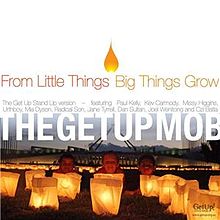
[1991]
Album "Comedy", con la formazione "Paul Kelly & The Messengers"
Scritta da Paul Kelly con Kev Carmody
Incisa anche da Carmody nel suo album del 1993 intitolato "Bloodlines"
La canzone parla del lungo periodo di scioperi, iniziato nel 1966, che in Australia vide protagonisti gli aborigeni dell'etnia Gurindji - guidati dal leader Vincent Lingiari - contro la società Vestey che a Kalkaringi (poi Wave Hill), sulle terre dei nativi, aveva insediato un'azienda di allevamento dove i proprietari originari, esautorati da ogni diritto sulla terra, venivano sfruttati come veri e propri schiavi e tenuti in condizioni di vita disumane...
La lotta dei Gurindji portò qualche anno dopo all'approvazione dell'Aboriginal Land Rights Act (1976).
Album "Comedy", con la formazione "Paul Kelly & The Messengers"
Scritta da Paul Kelly con Kev Carmody
Incisa anche da Carmody nel suo album del 1993 intitolato "Bloodlines"
La canzone parla del lungo periodo di scioperi, iniziato nel 1966, che in Australia vide protagonisti gli aborigeni dell'etnia Gurindji - guidati dal leader Vincent Lingiari - contro la società Vestey che a Kalkaringi (poi Wave Hill), sulle terre dei nativi, aveva insediato un'azienda di allevamento dove i proprietari originari, esautorati da ogni diritto sulla terra, venivano sfruttati come veri e propri schiavi e tenuti in condizioni di vita disumane...
La lotta dei Gurindji portò qualche anno dopo all'approvazione dell'Aboriginal Land Rights Act (1976).
Gather round people I'll tell you a story
(Continues)
(Continues)
Contributed by Alessandro 2009/10/5 - 11:12
Whose hand?
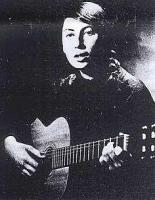
[1964]
Album "The Ballad of Women"
Testo di anonimo, messo in versi da uno studente del Queensland di nome Ian Hills.
Deportati da Mapoon
Negli anni '50 nella penisola di Cape York nel Queensland australiano furono scoperti importanti giacimenti di bauxite. Peccato che su quelle terre ci vivessero da sempre alcune comunità aborigene, quelle di Mapoon e di Lockhart River.. Ma il governo non ci pensò due volte su e deportò in massa i nativi concentrandoli a Bamaga, un'area molto ristretta dell'estremo nord della penisola. I villaggi delle comunità di Mapoon prima e più tardi quelle di Lockhart River, dove gli abitanti resistettero ai tentativi di deportazione fino al 1971, furono completamente rasi al suolo...
(fonte: en:wikipedia)
Album "The Ballad of Women"
Testo di anonimo, messo in versi da uno studente del Queensland di nome Ian Hills.
Deportati da Mapoon
Negli anni '50 nella penisola di Cape York nel Queensland australiano furono scoperti importanti giacimenti di bauxite. Peccato che su quelle terre ci vivessero da sempre alcune comunità aborigene, quelle di Mapoon e di Lockhart River.. Ma il governo non ci pensò due volte su e deportò in massa i nativi concentrandoli a Bamaga, un'area molto ristretta dell'estremo nord della penisola. I villaggi delle comunità di Mapoon prima e più tardi quelle di Lockhart River, dove gli abitanti resistettero ai tentativi di deportazione fino al 1971, furono completamente rasi al suolo...
(fonte: en:wikipedia)
It was late one Friday afternoon
(Continues)
(Continues)
Contributed by Alessandro 2009/9/30 - 12:01
×
![]()


![Juice Rap News [Game of Polls]](img/upl/Bellows-_Blessed_are_the_Peacemakers.jpg)
![Juice Rap News [Game of Polls]](img/links/t_61c833fa_394ab092.jpeg)
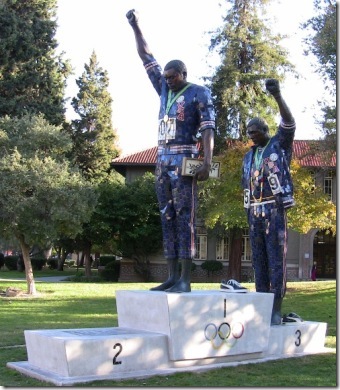
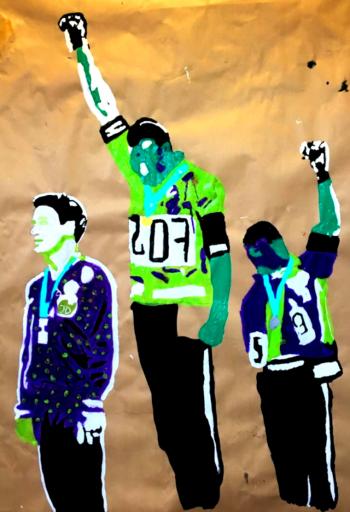
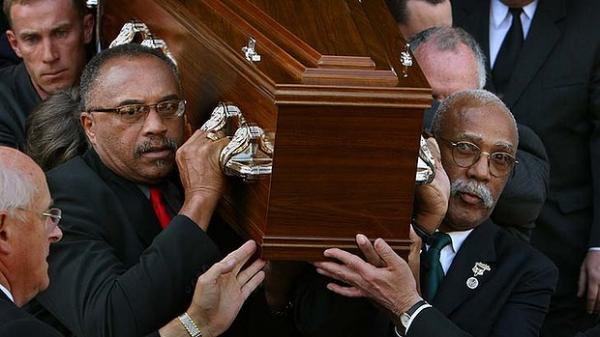
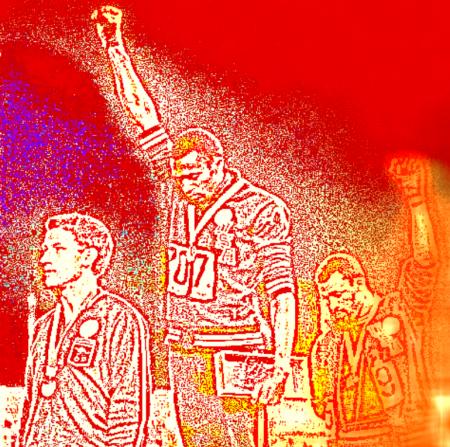

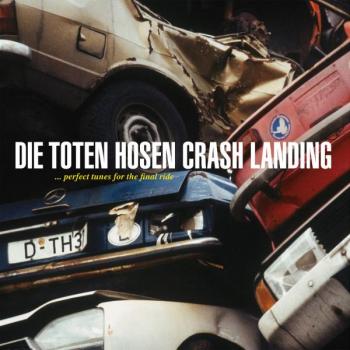
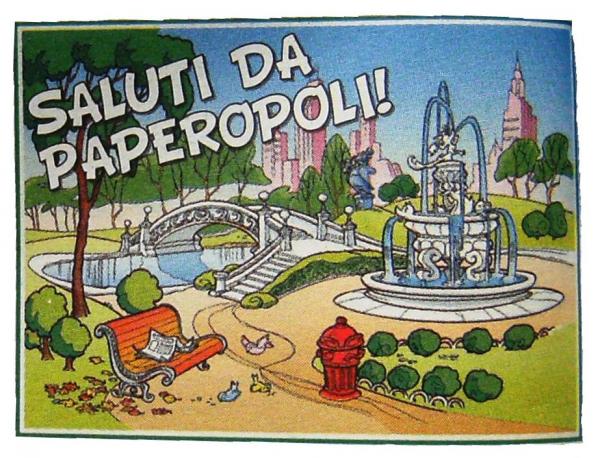
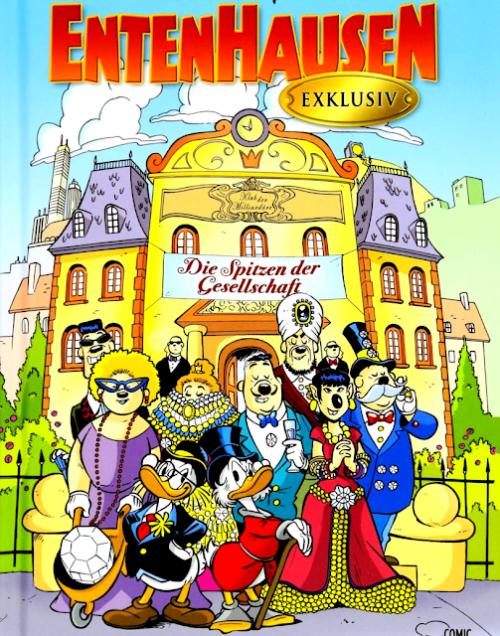

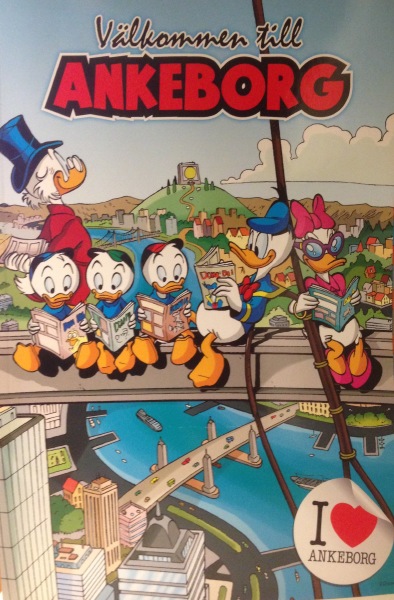
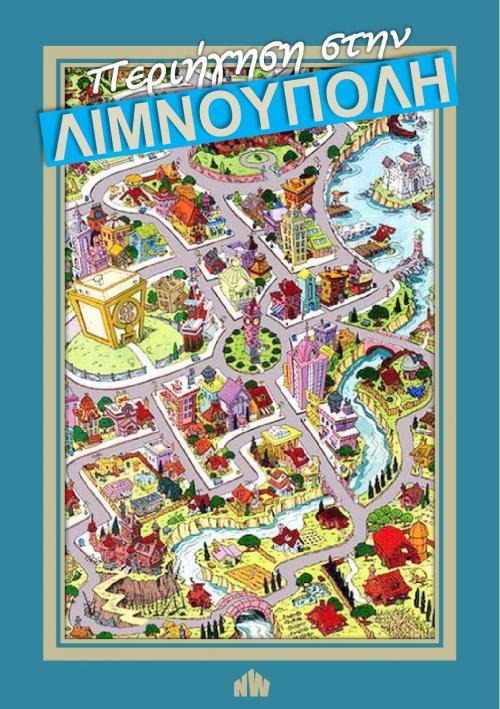
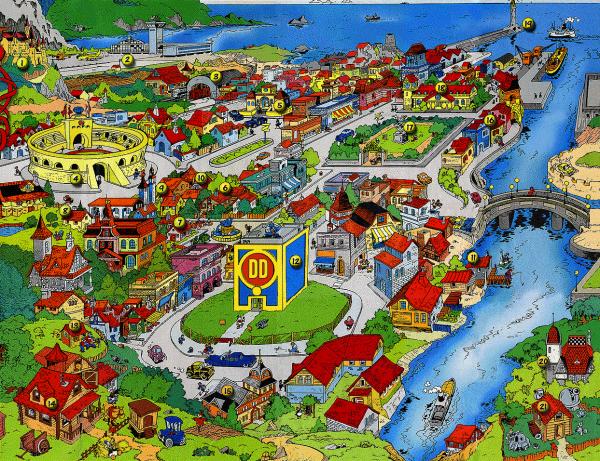
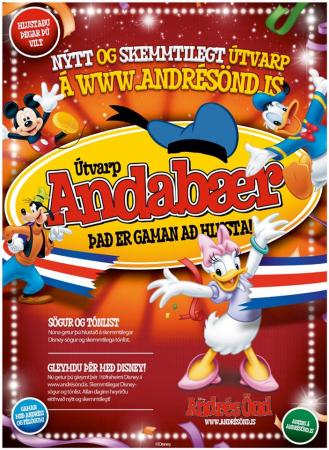
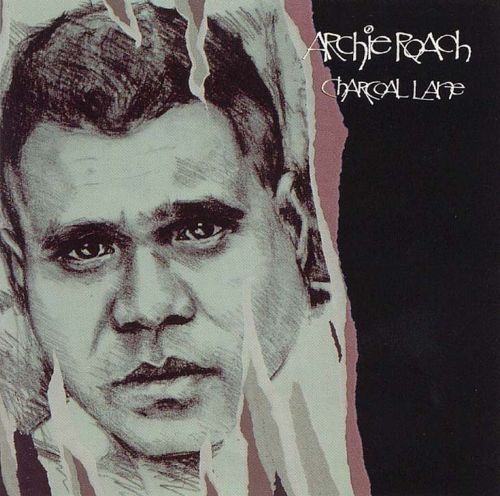
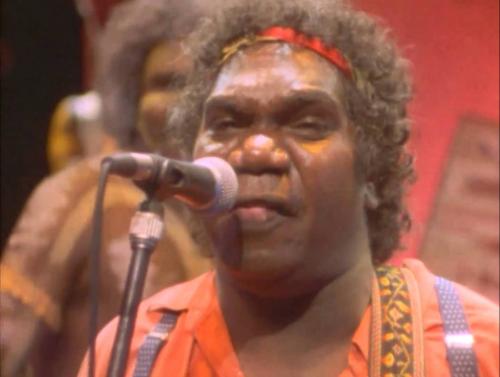

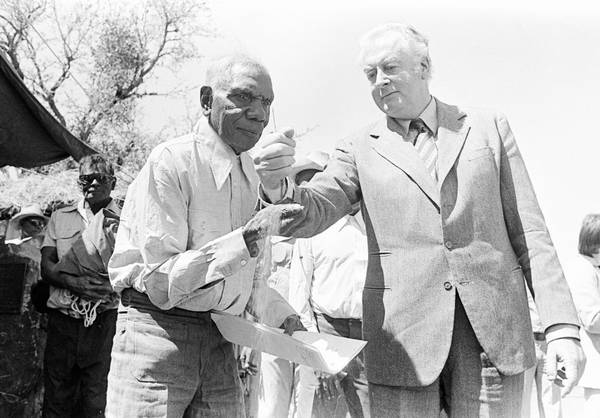
Yil Lull